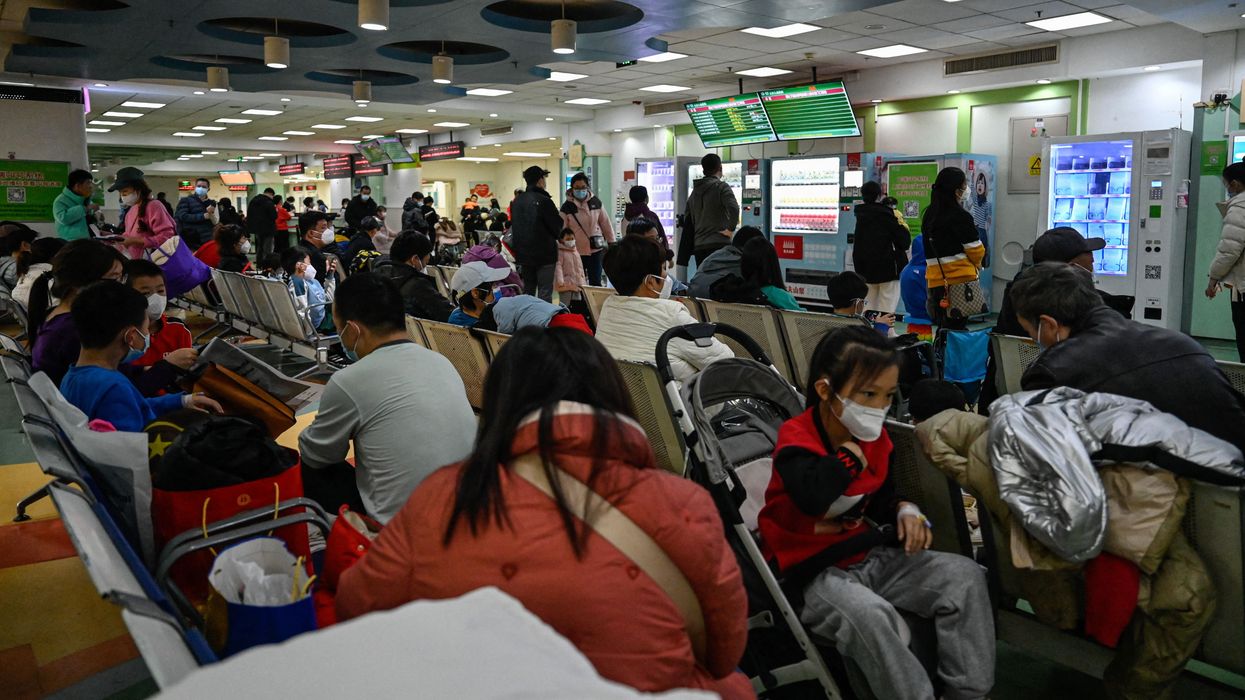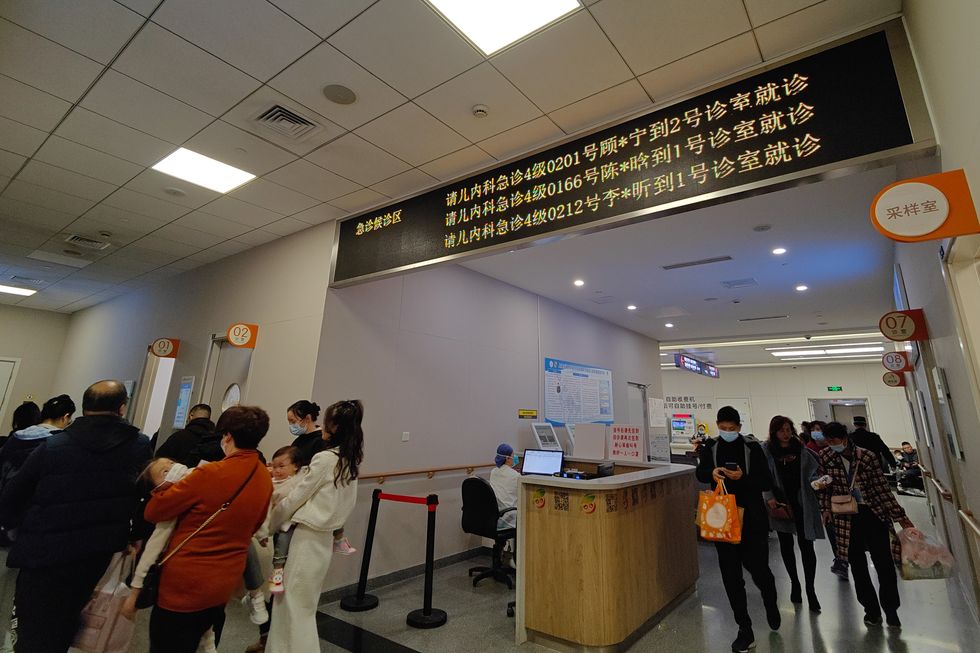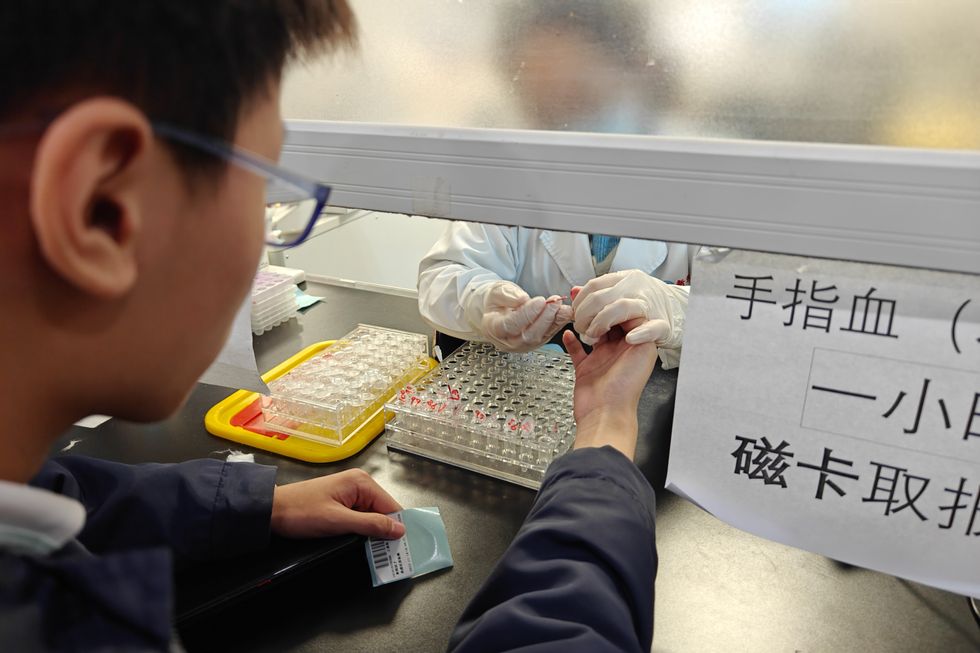China struck by mystery respiratory illness - WHO orders Beijing wear masks and quarantine amid spread fear

Children and their parents wait at an outpatient area at a children hospital in Beijing on November 23
|GETTY

Children across China have been particularly vulnerable to the virus
Don't Miss
Most Read
A mystery illness has broken out among children at hospitals across China as the group who first warned about Covid-19 issues another warning.
Hospitals in China have been “overwhelmed with sick children” as an outbreak of pneumonia escalates in major cities, including the capital Beijing.
ProMed issued a notification late on Tuesday detailing the reported epidemic of “undiagnosed pneumonia” in children.
The organisation is a large, publicly available surveillance system which monitors human and animal disease outbreaks worldwide.
WATCH NOW: GB News discuss the UK's Covid Inquiry
ProMed issued an alert in December 2019 which informed doctors and scientists about a mystery virus later named Sars-Cov-2.
The alert even brought the virus to the attention of senior officials at the World Health Organisation.
WHO has also urged residents to wear face coverings and steer clear of ill people.
The UN health agency "recommended vaccination; keeping distance from people who are ill; staying home when ill; getting tested and medical care as needed; wearing masks as appropriate; ensuring good ventilation; and regular hand-washing".
Taiwanese outlet FTV News suggested hospitals in two major cities were struggling with an influx of sick children.
A Beijing citizen said: “Many, many are hospitalised. They don’t cough and have no symptoms.
LATEST DEVELOPMENTS:
Parents take their children to see a doctor at the pediatric emergency department of a hospital in Shanghai
|GETTY
“They just have a high temperature (fever) and many develop pulmonary nodules.”
In an editor’s note, ProMed said: “This report suggests a widespread outbreak of an undiagnosed respiratory illness ... It is not at all clear when this outbreak started as it would be unusual for so many children to be affected so quickly.
“The report does not say that any adults were affected suggesting some exposure at the schools.”
However, the outbreak could be linked to Mycoplasma pneumoniae, also known as “walking pneumonia”, which is reportedly surging as China enters its first winter without its stringent lockdown measures.
Other countries, including the UK and US, saw similar surges in diseases such as RSV and flu once pandemic restrictions were lifted.
Walking pneumonia, which often impacts young children, could lead to a sore throat, fatigue, and a lingering cough that can last for weeks or month.
Zhou Huixia, director of the children’s medical centre at the Seventh Medical Center of the Chinese PLA General Hospital, told China Daily: “It is the first wave of mycoplasma pneumoniae infections since most COVID-19 containment measures were lifted at the beginning of this year.
“The wave has appeared particularly ferocious since the National Day holiday in early October.

A doctor draws blood from a patient's finger at a hospital emergency department in Shanghai
|GETTY
“Compared to previous years, we found more patients with mixed infections, drug resistance and lobar pneumonia.”
She also warned an “intense” wave of infections could peak in November.
The increase in infections could coincide with an uptick in other infectious respiratory diseases previously suppressed by lockdowns.
However, Chinese medical experts have argued very few children have died from “walking pneumonia” to date.
Hua Shaodong, a paediatrician at the Beijing Children’s Hospital, said: “There is a steady number of patients developing severe cases, but there are very few critical cases, and there are no related deaths so far.
“The average days in hospital for hospitalised patients is around seven to 14 days.”










